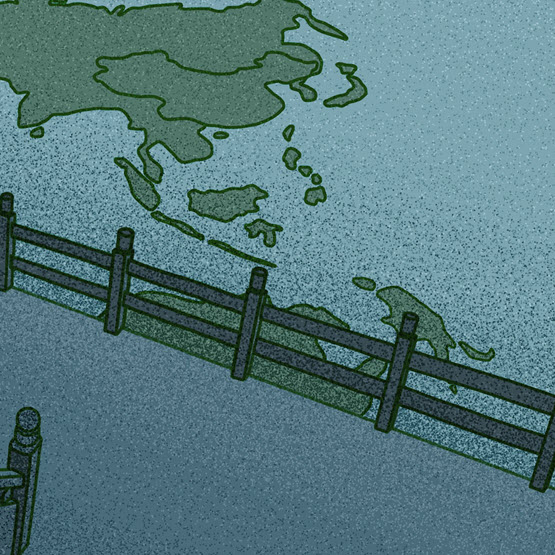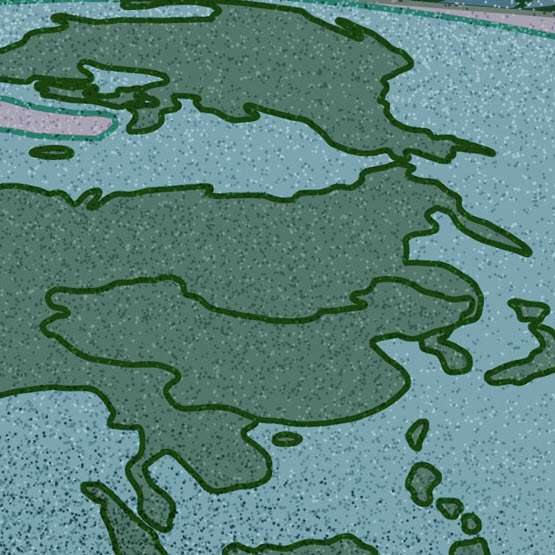Territorialization and the South China Sea

In this video, Bec Strating, Director of La Trobe Asia, examines China’s territorialization of the South China Sea, both as a defensive response against the perception of encirclement and as a way to extend its control and authority over maritime areas. She describes the four main strategies that China is pursuing in order to achieve […]
How Chinese Strategists View, Understand, and Contend with Russia’s Strategic Space

On September 3, 2019, at the Central Party School of the General Secretary of the Chinese Communist Party (CCP), Xi Jinping gave an important speech on “struggle,” where he referred to recent Chinese history: under Mao Zedong Chinese people stood up, under Deng Xiaoping and his predecessors Chinese people became rich, and under Xi Jinping […]
Brief: Mapping China’s Strategic Space

The global scope of China’s geostrategic ambitions has become more obvious since Xi Jinping’s accession to power. However, expansionist inclinations first became evident in national security and military circles as early as the mid-1980s. Since that period, Chinese strategic thinkers have been mulling over the dimensions of an enlarged space, deemed necessary to ensure China’s […]
China’s View of Its Economic Sphere of Influence, Economic Security, and Trading Networks

The external economic strategy of the People’s Republic of China (PRC) is multilayered and asymmetrical in what the PRC demands from other countries and what it seeks for itself. On one level, China depends on the open, rules-based global economic system embodied in the World Trade Organization (WTO)—in which member countries are required to keep […]
Cooperation, Coexistence, and Contestation in India’s and China’s Overlapping Strategic Spaces

By dint of their geographies, partnerships, development imperatives, and broader objectives, China and India have had overlapping strategic spaces since India became independent in 1947 and the People’s Republic of China (PRC) came into being in 1949. As their interests and capabilities—and thus reach—have grown, the theater of their strategic interaction has expanded to encompass […]
National Insecurity: Frontier Governance and Ethnic Policy in Contemporary China

We hear a lot today about China’s border conflicts, from high-altitude skirmishes with Indian forces in the Himalayas to legal tussles over maritime sovereignty in the South China Sea. But the People’s Republic of China (PRC) does not just have a border problem. It also has a borderlands problem, or what in official Chinese rhetoric […]
Geography Matters, Time Collides: Mapping China’s Maritime Strategic Space under Xi

With an increasingly powerful People’s Republic of China (PRC) under paramount leader Xi Jinping engaging in meteoric military-maritime buildup and pressing disputed sovereignty claims with increasing assertiveness, it is more important than ever to consider Beijing’s “mental map”: how its leaders regard the physical nature of strategic space. As Andrew Rhodes argues cogently, “Being able […]
Chinese Perspectives on the “Indo-Pacific” as a Geostrategic Construct

The geopolitical significance of the Pacific and Indian Oceans has been a prominent issue in the Chinese political and diplomatic discourse. In 2013, Xi Jinping called on leaders at the Asia-Pacific Economic Cooperation (APEC) Economic Leaders’ Meeting to “firmly move toward the goal of constructing a common destiny of the Asia-Pacific,” a vision he has […]
A Domain of Great Powers: The Strategic Role of Space in Achieving China’s Dream of National Rejuvenation

China’s strategic conception of and engagement with outer space has evolved over time depending on each major leader’s personal ambition for the country as well as the international environment they faced. Under Mao Zedong, China’s strategic interest in the space sector was for military development and technological prestige. During Deng Xiaoping’s reign, the country’s space […]
The Evolution of China’s Naval Strategy

The People’s Republic of China (PRC) has significantly modernized and expanded its naval capabilities, reshaping the maritime balance of power in the Indo-Pacific region. To shed light on the evolution and implications of the PRC’s naval strategy, Nai-Yu Chen and Jeremy Rausch interviewed Bernard D. Cole about the driving forces behind the transformation of the […]